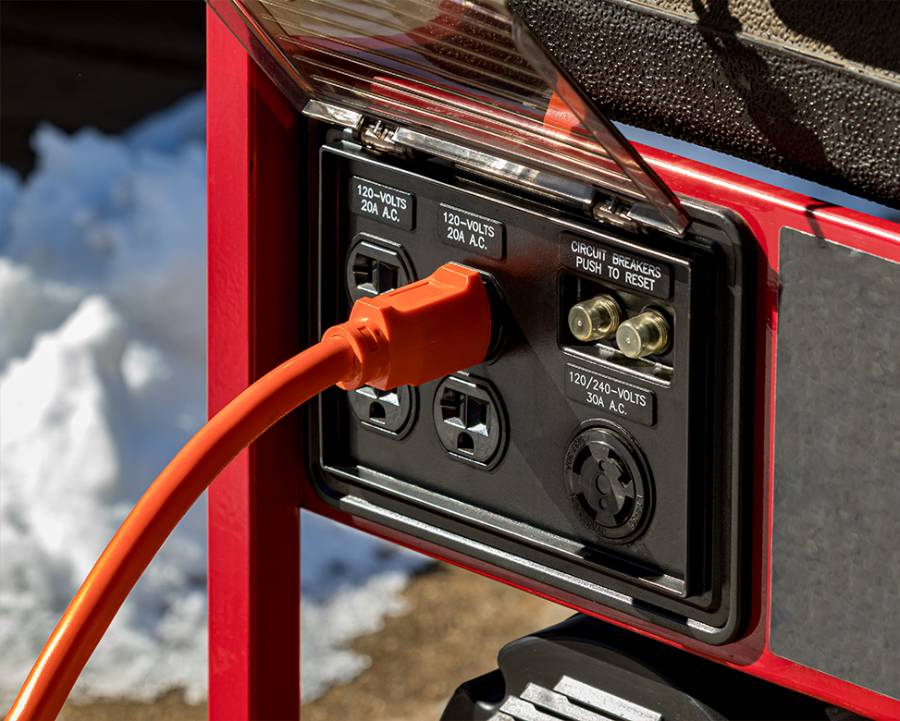
When the power goes out during a major storm or utility outage, we realize just how much of our lives rely on electricity. Learn about the hazards of using a portable generator if you lose power in your home.
Risks and precautions
While there are many benefits to using an emergency generator, there are also several hazards that you should consider:
1. Carbon monoxide (CO)
Generators release an enormous amount of carbon monoxide. A single generator produces as much carbon monoxide as 100 cars, according to the National Institute of Standards and Safety. Can you imagine tubes connected to the exhaust of all those cars releasing dangerous fumes into your garage?
Generators should be run only in a well-ventilated area, preferably outside. A carport is a safe place for running a generator but a cellar, attached porch or enclosed garage, even when ventilated, is not.
If you’re setting up your generator outdoors, be careful not to place it close to a vent, open window or door because toxic gases can enter your home. Buy one or more carbon monoxide detectors to warn you of toxic levels of CO. The detectors should be battery-operated (or have a backup battery in case you lose AC power) and placed on each level of your home, preferably high on a wall near the bedrooms.
2. Fuel
Gasoline is highly combustible. Your generator should be checked for leaks once a month and every time it’s used or placed into storage. Most portable generator tanks hold several hours’ worth of fuel, but not enough for extended power usage. Therefore, many homeowners store additional fuel in portable containers to replace the fuel in the generator tank when the tank runs low. Make sure your supplemental fuel is stored in a safe location.
3. Weight of the generator
Generators are portable, but not all of them are equipped with wheels. Few portable generators, other than the smallest, can safely be lifted without risking injury. Occasional lifting may be necessary, such as when you bring the unit home, when it must go out for repairs or maintenance, or when it is to be used off premises. You should consider purchasing a unit with wheels and lifting handles.
4. Wiring
Most generators are designed to be independent of household wiring. Extension cords may be run from outlets on the generator to appliances or equipment that require electricity, and they should be rated for outdoor use in wet environments. Heavy-duty cable is recommended, typically bearing a wire gauge rating of 10 or 12 AWG. You should never connect household extension cords directly to your generator.
5. An ungrounded system
If the power from the generator is brought to a transfer box, an electrician will be able to ground your system properly. However, equipment and appliances that are directly connected to the generator will not have grounding protection unless you take certain steps. Most generators have a connection point (i.e., a bolt connected to the frame) to which a grounding wire can be attached.
6. Operational hazards
The following precautions should be considered whenever operating a generator:
Don’t touch the conducting parts of a generator with wet hands or when standing in water.
Start the generator and let it run for a few minutes before connecting it to a transfer panel or an extension cord.
Reverse this process when it is time to turn off the generator by disconnecting the cords and then shutting it down.
Before refueling, disconnect the load, turn off the generator and let it cool for a couple of minutes before adding fuel.
Keep an ABC-rated fire extinguisher handy.
Before buying a generator
Determine if a 240-volt outlet. (for example, to run a stove or clothes dryer). Most generators produce 120 volts, but some also have a 240-volt outlet. You may want to check out the manufacturer’s website, where detailed product specifications and alternative units are listed.
Consider this information before you purchase or use a generator — and the next time there is a loss of power at your home.
To consult with an insurance advisor call 800-392-6532 or email insure@colby-group.com.
This article is for informational purposes only. Insurance needs and coverages vary; therefore, the terms of your policy will be specific to your situation. We recommend that you discuss your insurance needs with a licensed agent for details on pricing, coverages, and exclusions.
This content is for informational purposes only and not for the purpose of providing professional, financial, medical or legal advice. You should contact your licensed professional to obtain advice with respect to any particular issue or problem.
Copyright © 2022 Applied Systems, Inc. All rights reserved.

